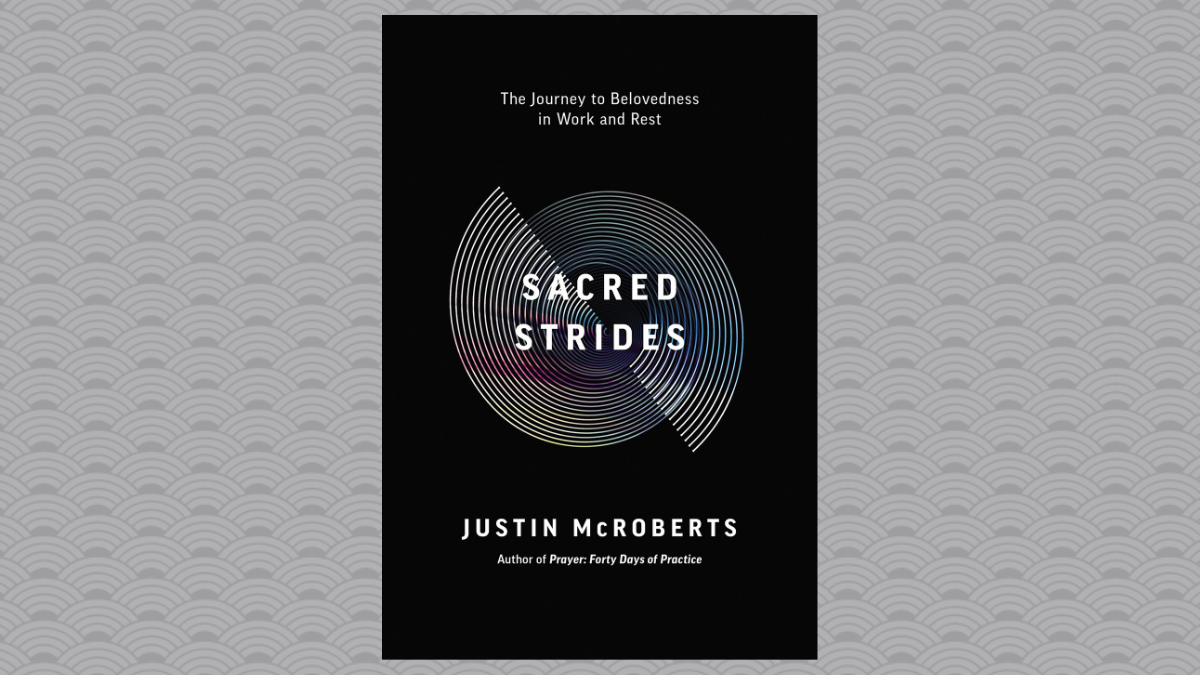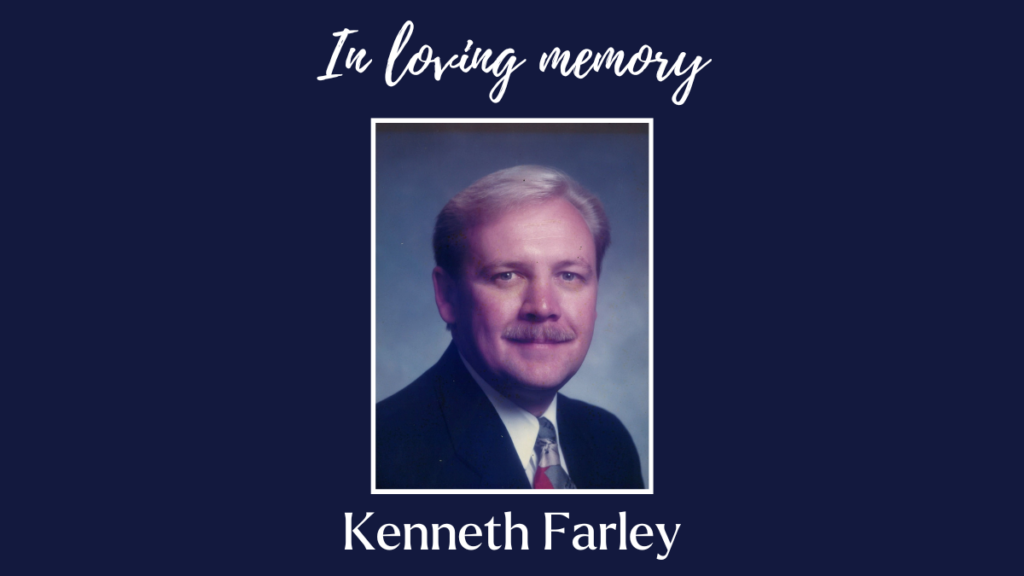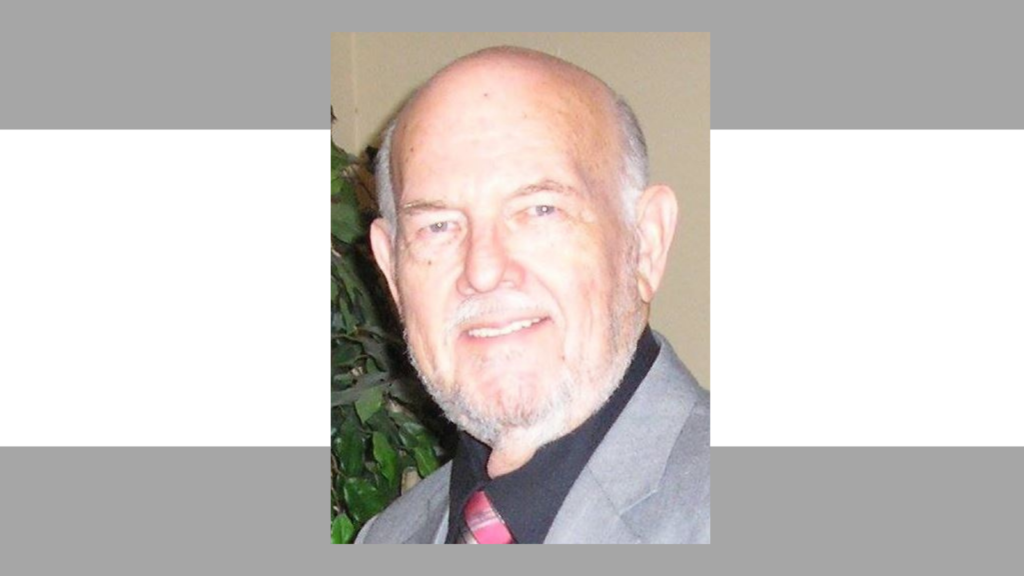One of the goals of modern culture is to find the perfect balance between work and rest. Justin McRoberts, coach and author of “Sacred Strides: The Journey to Belovedness in Work and Rest,” has a very different perspective — that connectedness with God doesn’t flow simply from experiencing a perfect time of praying and meditating or, on the flip side, from getting a lot accomplished.
“My natural posture is not work, nor is my natural posture rest. My natural posture is belovedness, and both work and rest spring from my belovedness and return me to it,” he said.
The journey to learn that work and rest are not opposites was born out of the two most impactful events in his life — his dad committing suicide and McRoberts losing the church he founded and grew.
Both losses involved relationships that had been built over time. Running together was one of the main ways McRoberts bonded with his workaholic dad.

“Some men share hunting with their dads. Some men share baseball or football. My dad and I went jogging,” McRoberts said.
“[My dad] came home energized, happy and even looking a bit younger. I suppose I felt very much the same when he invited me to run with him — energized, happy and young,” McRoberts said.
Running together was a “key connection point” between McRoberts and his father throughout his teens and early 20s.
Then his dad became severely depressed after hurting his knee from a fall. One day McRoberts asked him if they could run together.
“We set out to run about 4 and a half miles, maybe 5. We got about 2 miles in and his leg hurt and he was tired, and he kept apologizing that he couldn’t keep up,” McRoberts said.
McRoberts walked around to his dad’s side with the bad leg and walked back with him, carrying his weak side. McRoberts tried to convey that he didn’t care about not finishing the run — all he wanted was to experience that same joy he had as a 12 year old, just spending time together.
Now McRoberts recognizes that this was a really great image of how God comes alongside His children, but in a literal sense, this day showed McRoberts how he and his dad couldn’t enjoy any time together because his goal-focused dad only cared about making it a certain distance.
Shock and disappointment
Fast forward about 20 years. McRoberts found himself in a similar state his dad had been in — burnout and depression. It hit him hard when the church that McRoberts had founded more than a decade earlier held its final service.
“Something in my subconscious assumed that if I was doing religious work, working in church culture, that by nature I would avoid things like burnout or depression — and I didn’t,” McRoberts said.
“So then there I was in my early 40s staring down a lot of the same stuff that my dad had been staring down with regards to identity: Who am I if the things I’m building don’t work?”
McRoberts said it took a long time to shake the shock and disappointment he felt in his early 40s after the church closed and “feeling like I failed God and that I failed people I loved.”
Both living this experience and then reliving it as he wrote about it for “Sacred Strides” brought up an important question: “Am I what I do?”
He knew in his head that the answer was no. But he also knew he had fallen into the trap of believing in his heart that it was.
“I was a pastor, and it was great to be a pastor and I loved being a pastor. But it’s a job. It’s not the whole of my identity. I get to pastor people because I’m loved by Christ who holds my life together. I just got lost in the job of pastors and forgot that it was about the love of Jesus,” McRoberts said.
What matters
Through these life-changing experiences as well as other stories and reflections portrayed in the book’s 15 chapters, McRoberts developed some insights into what’s really important.
“In the continuum between that first event in my 20s and that second event in my 40s is a truckload of stories about learning to work and learning to rest, and I eventually learned that the bottom line is that I’m loved by God and that my work and my rest flow from my belovedness and return me to it,” he said.
McRoberts feels strongly that he had to take the time to internalize what he’s been learning before he could pass those truths along.
“The gifts that God gives me, He gives to me because He loves me. If I pass them on to other people, I can’t do it [purely] because I’m an instrument in God’s toolbelt who is given things to pass on. I have to do it as an act of love, which means I have to be a person who knows that he’s loved first.
“God’s not interested in just using me to get a message across. I hope to get messages across, but God’s primary desire in my life is for Him and me to be in this relationship together,” McRoberts said.
“That’s pretty near the heart of belovedness — simply being with the one you love. God wants you and me doing work that lights our hearts on fire. More than that, God wants to be with us in that work.”
“Sacred Strides” can be bought on Amazon and other places such books are sold. To find out more about McRoberts, go to justinmcroberts.com.






Share with others: